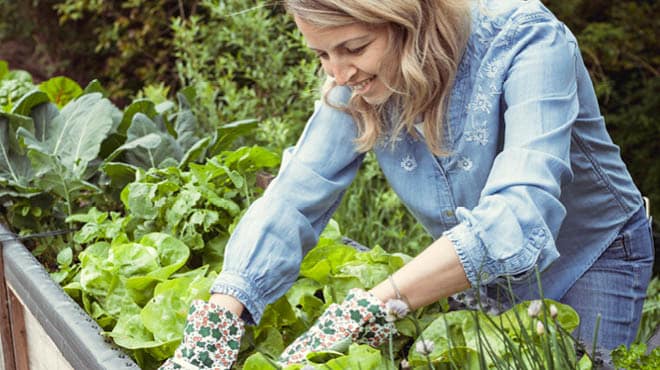Sustainable Gardening Practices for an Eco-Friendly Garden
Sustainable Gardening Practices for an Eco-Friendly Garden
Blog Article
Unlocking the Advantages of Horticulture: A Thorough Check Out the Various Types and Their Influence On Wellness
Checking out the multifaceted advantages of horticulture exposes a range of techniques that substantially enhance specific wellness. As we check out these varied gardening methods, it comes to be evident that their effect can reverberate on individual, social, and environmental levels, triggering a closer look at just how these connections create a cohesive narrative of all natural wellness.
Sorts Of Horticulture

Blossom gardening, an additional popular group, stresses the visual appeal of grown flowers. This type can boost landscapes and promote biodiversity by bring in advantageous pollinators. Natural herb horticulture involves growing fragrant and culinary plants, adding both to cooking and natural solutions.
Container gardening offers convenience, allowing individuals with minimal space to involve in horticulture by making use of pots and planters. This technique is especially preferred in urban setups. Increased bed horticulture, on the various other hand, involves creating raised plots that boost soil drain and ease of access, making it much easier for garden enthusiasts to manage their plants.
Last but not least, area gardening fosters collaboration among people in common spaces, promoting social communication and collective duty. Each kind of horticulture offers unique purposes and provides to various preferences, making gardening a flexible activity that can be customized to specific needs and atmospheres.
Mental Health And Wellness Advantages
Involving in numerous kinds of gardening not just produces tangible rewards such as fresh fruit and vegetables and gorgeous flowers however also offers substantial mental health advantages. Research study shows that gardening can be an effective tool for lowering anxiety, anxiety, and depression. The act of often tending to plants and cultivating a yard fosters a feeling of objective and achievement, which can improve overall emotional wellness.
Furthermore, gardening urges mindfulness, as it requires people to concentrate on today minute, whether it be planting seeds or nurturing growth. This mindfulness method can bring about reduced rumination and enhanced mood security. The direct exposure to natural surroundings throughout gardening has actually likewise been linked to improved cognitive functioning and lowered sensations of tiredness.
Social communication plays a crucial function in mental health, and neighborhood gardening efforts give opportunities for individuals to get in touch with others, cultivating a feeling of belonging. The shared experience of gardening can cultivate relationships and assistance networks, additionally reinforcing psychological durability.
Physical Health And Wellness Advantages
Numerous individuals may not understand that gardening also offers substantial physical health advantages. Engaging in horticulture activities calls for an array of physical motions, including bending, training, excavating, and growing, which collectively add to enhanced toughness, versatility, and endurance. These activities can improve cardiovascular health and wellness by advertising a raised heart price, thereby lowering the danger of heart problem.
Additionally, horticulture can act as a moderate-intensity exercise, aiding individuals attain recommended physical task levels. Research studies indicate that regular involvement in horticulture can melt considerable calories-- about 200-400 calories per hour, depending on the strength of the tasks performed. click to read more Such calorie expenditure is useful for weight monitoring and overall metabolic health and wellness.
Furthermore, exposure to sunlight throughout horticulture can assist in the synthesis of vitamin D, which plays a vital role in preserving bone health and supporting immune function. Moreover, the act of horticulture frequently includes collaborating with dirt, which has been linked to potential psychological and physical health and wellness benefits because of the presence of valuable bacteria. Gardening.
Social Connections Via Horticulture
The communal facets of gardening foster meaningful social connections amongst people. Neighborhood gardens, in certain, work as vivid centers where people from varied histories come with each other, cultivating not just plants yet also partnerships. These shared rooms motivate collaboration, permitting individuals to trade understanding, skills, and resources, therefore improving their horticulture experience and cultivating a feeling of belonging.
Interaction in gardening tasks frequently leads to the development of friendships and support networks. Individuals often unify for common goals, such as growing periods, harvest celebrations, or educational workshops, which strengthen social ties and develop a sense of area. Such communications can minimize feelings of isolation and boost mental well-being, as individuals find companionship and camaraderie in shared endeavors.

Environmental Effect of Horticulture
Horticulture significantly adds to environmental sustainability in multiple means. Home yards supply vital habitats for numerous types, including pollinators such as and butterflies, which are essential for ecosystem wellness.

In addition, gardens play an essential duty in water conservation. Tactical landscapes, consisting of indigenous plants and xeriscaping, minimize water usage and stop drainage, therefore securing neighborhood waterways from pollution.
Final Thought

In final thought, horticulture serves as a multifaceted task that improves well-being across different domain names. The varied sorts of check that horticulture-- including veggie, flower, natural herb, container, and increased bed-- add to mental and physical health, foster social connections, and promote ecological sustainability. By participating in gardening techniques, individuals can experience improved lifestyle while additionally sustaining community bonds and ecological health. Ultimately, the holistic benefits of horticulture highlight its significance as an important aspect in improving total wellness.
Report this page